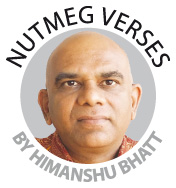AS more than 32 million people in Malaysia brace for the nationwide restricted movement order – described by some media as a partial “lockdown” – many are preoccupied with visions of alarm, inconvenience and turmoil at shops and supermarkets.
There is however another, very different outlook of this situation compelled upon us due to the Covid-19 global pandemic.
With business and industrial premises ordered closed, and people told to remain indoors, a blanket of calm will envelop the whole land in a manner not seen over the past century.
For the first time in modern living memory our air will be virtually free of carcinogenic smoke pollution and deleterious engine noise.
The vast expanse of our environment will cease to be disturbed in an unprecedented way, with our trees, our coastlines, our hills and soils becoming free of encroachment.
For once, motor vehicles will be reduced to a minimal number on the roads. Factories will pause operations to stop discharging gas and soot into the air. Commercial aeroplanes will no longer burn thousands of tonnes of fuel in the sky.
And for the many families forced to huddle together in their homes, this may well be the first time that they get to be truly together for a lengthy period of almost two weeks, relying on each other for company, succour and comfort.
The heavy focus on the viral outbreak has clouded a great truth about this historic government order: that it will have an unintentional effect of providing a much needed breather for all.
Many will emerge from the experience with an entirely new perspective of our everyday lives. Some may even wish for the country to undergo the “detox” exercise every year.
In fact, such an occasion to suspend societal activity so as to bring rejuvenation and healing is a deeply rooted practice in one of our most intriguing regional neighbours.
Every year, some time around March, the Hindus of Bali observe Nyepi – a profound day of calmness and reflection that is recognised as a public holiday in Indonesia.
The entire island of Bali comes to a virtual stillness. There is absolute silence from any artificial noise.
Except for emergency and security personnel, everyone stays at home. No one ventures out. No vehicles move on the streets. Even planes are not allowed to land or take off.
According to Indonesian-born philosopher and author Swami Anand Krishna, the observance is to benefit the environment and the self.
“Nyepi is about voluntary withdrawal, and that demands a high sense of civic responsibility,” he explains. “It is about honouring and appreciating the bounties of Mother Earth and allowing her to rest.”
“People also engage in fasting and giving rest to their bodies, and thereby conserve energy,” says Anand, who heads an ashram in Bali’s lush Ubud district.
The idea is to not indulge in daily material routines, and instead spend time reading spiritual texts and introspecting, he adds, so as to help one’s body and mind be “recharged”.
This same situation is now also being felt by other countries that are battling the virus. The radical “lockdown” measures in Italy, for example, have effectively cleared numerous old towns with fragile monuments and limited capacities from the scourge of mass international tourism.
Venice, which has long suffered due to excessive and unsustainable tourism impacting its precious heritage structures, has seen a welcome respite with a virtual absence of visitors perhaps for the first time since the world wars.
While we pray for the victims of the dreaded coronavirus to recover, it has somehow reminded us that there is another healing that also needs to imperatively take place.
Unfortunately, it may now take many more years or even centuries before society and Mother Nature find the chance again to be convalesced from the ravages of our unbridled human activity.
Himanshu is a veteran journalist and theatre practitioner. Comments: letters@thesundaily.com










